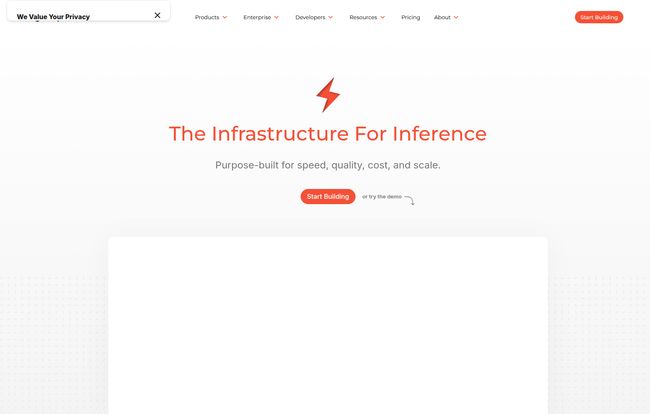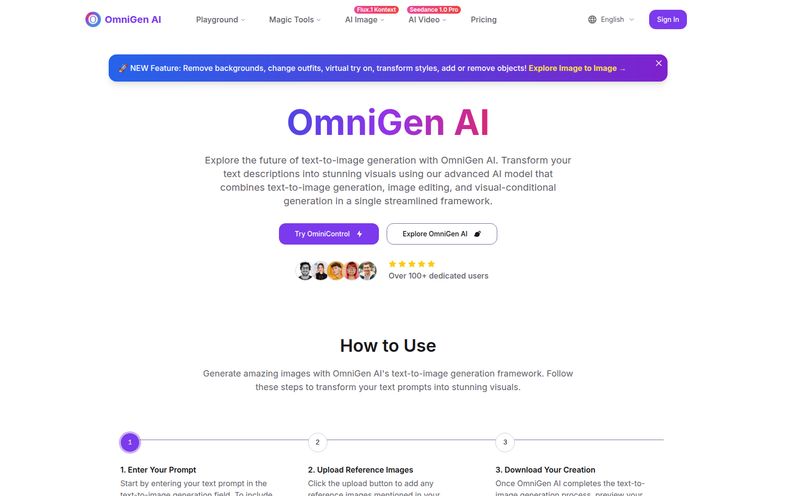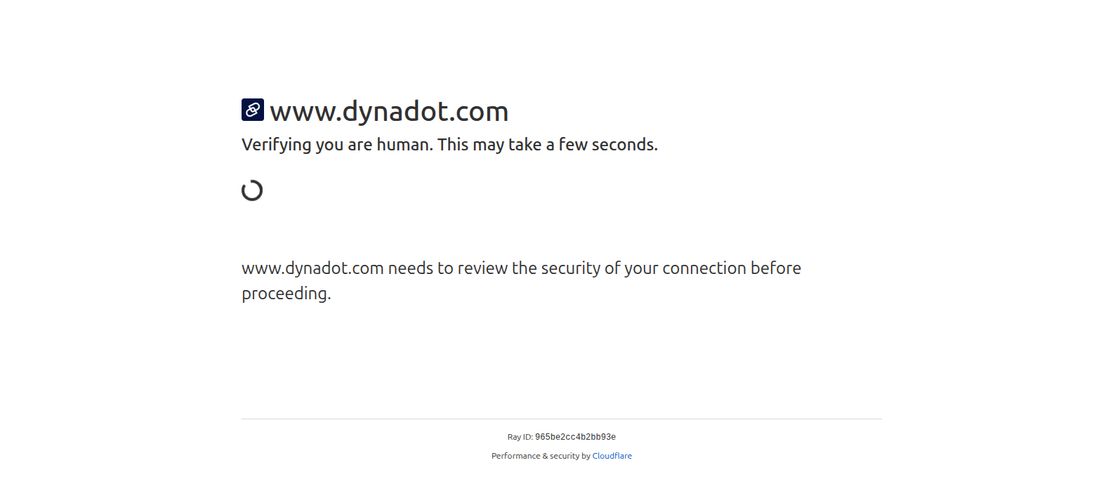If you're in the SEO or dev space, you've probably spent more time than you’d like to admit watching that little spinning icon while waiting for an AI to spit out a response. Whether you’re generating content, debugging code, or just messing around, that lag is a constant companion. It's the digital equivalent of an awkward pause in a conversation. We’ve just... accepted it. That's the price of admission for this AI revolution, right?
Well, maybe not. I've seen a dozen platforms this year claiming to be the next big thing, the 'OpenAI killer'. Most are just noise. But then I stumbled upon something that felt genuinely different. Something that didn't just feel like an incremental improvement but a fundamental shift. I’m talking about Groq.
And no, that’s not a typo for that Elon Musk AI. This is something else entirely. It’s a company that’s been around since 2016, quietly building the engine for a new era of AI interaction. And let me tell you, the first time you use it, it's a bit of a shock to the system.
So, What on Earth Is Groq?
Here's the thing you need to get right away: Groq isn't an AI model. It's not a competitor to Llama 3 or GPT-4 in that sense. Groq is the engine that runs those models. Think of it this way: Llama 3 is a world-class race car driver, but for the longest time, we've had them driving a souped-up sedan. Groq is the custom-built Formula 1 car they were always meant to have.

Visit Groq
The secret sauce is their proprietary chip, the LPU™, or Language Processing Unit. Unlike GPUs (Graphics Processing Units), which are incredible all-rounders that we've adapted for AI, LPUs are specialists. They are designed from the ground up to do one thing with terrifying efficiency: run AI inference tasks. Inference is simply the process of using a trained model to generate a response. It’s the ‘thinking’ part. And by creating a specialized architecture for this specific task, Groq has achieved something remarkable.
They’ve essentially removed the bottleneck. It's less about raw computational power and more about a smarter, more direct processing pipeline. The result? Speed. Absurd, jaw-dropping speed.
The Need for Speed: My First Test Drive
I’m naturally skeptical. So when I see claims of “exceptional compute speed,” I roll my eyes a little. But the Groq demo is public, so I gave it a shot. I threw a moderately complex prompt at it, hit enter, and the response was just... there. Instantly. No typing animation, no perceivable delay. It felt less like a generation and more like it was revealing text that was already written.
The industry metric for this is tokens per second (t/s). A 'token' is roughly a word or part of a word. A decent response speed might be 40-50 t/s. On Groq, I was seeing models like Llama 3 8B hitting over 750 tokens per second. That isn't just faster; it changes the entire experience. It's the difference between a laggy video call and a fluid, face-to-face conversation. You can iterate, refine, and brainstorm at the speed of thought. Truly a different beast.
Breaking Down the Groq Ecosystem
Okay, so it's fast. But what are you actually running, and what’s it going to cost me? This is where it gets interesting for developers and businesses.
The Models on Offer
Groq isn't locking you into a single proprietary model. They are all about providing access to leading openly-available models. Looking at their platform, you can get your hands on some of the best open-source players in the game. This includes Meta's powerful Llama 3 (both the 8B and 70B parameter versions), Mixtral 8x7B from Mistral AI, and Google's Gemma 7B. It's a solid lineup that gives you flexibility. They’ve also expanded into Text-to-Speech with PlayHT and Automatic Speech Recognition (ASR) with Whisper, which makes it a much more versatile platform than just a text generator.
Let's Talk Money: The Pricing Structure
This was the second surprise. Often, cutting-edge speed comes with a cutting-edge price tag. But Groq’s pricing is… well, it’s aggressive. They charge per million tokens, which is pretty standard, but the rates are seriously competitive. For example, running Llama 3 8B is currently listed at about $0.08 per 1M input tokens and $0.08 per 1M output tokens. Mixtral comes in around $0.24/$0.24. This is a price point that puts some serious pressure on the established players, especially when you factor in the performance-per-dollar.
Of course, you have to remember these prices can change, and some of the models are still in preview. So you definatly want to check their official pricing page for the latest numbers before you commit to a big project.
Switching From OpenAI Is a Breeze
For my fellow developers and SEOs who have tinkered with APIs, this might be the most beautiful part. Groq designed its API to be compatible with the OpenAI SDK. What does that mean in plain English? If you have an application that currently calls the OpenAI API, you can switch it over to Groq by changing just a couple of lines of code. The endpoint URL and the model name. That's it.
As someone who has spent days refactoring code to integrate a new service, the simplicity here is a massive win. It lowers the barrier to entry to almost zero. You can test the performance gains on your own applications in minutes, not weeks. It’s a smart move that shows they understand their audience.
The Other Side of the Coin: Potential Downsides
It can't all be sunshine and 750 tokens-per-second, right? No platform is perfect, and it’s important to go in with your eyes open. Me and my team found a few things to consider.
The Open Model Gamble
Using open models is a double-edged sword. On one hand, you get choice, transparency, and the power of a global community. On the other hand, you don't get the specific, deep-level fine-tuning and proprietary magic of a closed model like GPT-4o. For some use cases, the raw power and specific knowledge base of a model like that might still be superior, even if it's slower. With Groq, the onus is on you to pick the right model for your job, and that requires a bit more research.
Is It Too New?
The platform is blazing fast, but some parts are still very new. The 'preview' tag on some of the models isn't just for show. It means you might encounter weird quirks, API changes, or unexpected limitations. If you're building a mission-critical, enterprise-grade application where stability is everything, you might want to run some extensive tests first. Being on the cutting edge means you sometimes get a little nicked.
Who Is Groq Actually For?
I see a few groups getting really excited about this.
- Developers & Startups: Anyone building AI-powered features or entire applications. The combination of speed and low cost is a huge competitive advantage. It could enable real-time applications that were previously impossible.
- Content Creators & SEOs: For those of us generating content at scale, the speed is a productivity multiplier. Brainstorming, outlining, and drafting can happen in a fraction of the time.
- Researchers & Academics: Running large-scale inference tasks for research purposes just got a whole lot faster, dramatically shortening testing cycles.
- The AI Enthusiast: Honestly, every person who is curious about the future of AI should try the demo just to feel what real-time interaction is like. It'll recalibrate your expectations.
Conclusion: It's More Than Just Speed, It's a New Feeling
So, is Groq the 'OpenAI killer'? I don't think that's the right question. OpenAI builds incredible models; Groq builds the racetrack that lets them fly. It's a symbiotic relationship. Groq is creating a new hardware category with its LPU that fundamentally changes the performance equation for a whole ecosystem of open models.
The real takeaway for me isn't just the raw numbers. It’s the feeling. It's the shift from a turn-based, command-and-response interaction to something that feels alive and immediate. This is a major step toward making our interactions with AI seamless and natural. And for any business or creator, that immediacy opens up a world of new possibilities. I, for one, am incredibly excited to see what people build with it.
Frequently Asked Questions (FAQ)
Is Groq an AI model like ChatGPT?
No, Groq is not an AI model. It is a hardware and software platform featuring a specialized chip called the LPU (Language Processing Unit). It runs other companies' AI models, like Meta's Llama 3, but does so at incredibly high speeds.
What is an LPU and how is it different from a GPU?
An LPU (Language Processing Unit) is a new type of processor designed specifically for the computational needs of large language models (inference). A GPU (Graphics Processing Unit) is a general-purpose processor that was originally for graphics but has been adapted for AI. Because the LPU is specialized, it can perform inference tasks much faster and more efficiently than a GPU.
Can I use Groq for free?
Groq offers a free demo on its website for anyone to try out the speed of their system. For developers who want to build applications using their API, there is a cost associated, which is typically based on the number of tokens you process. They offer very competitive rates.
How hard is it to switch my app from OpenAI to Groq?
It's surprisingly easy. Groq's API is designed to be compatible with the OpenAI API standard. For many applications, it only requires changing the API endpoint URL and the model name in your code, which can often be done in just a few minutes.
Does Groq train its own models?
No, Groq's primary focus is on the hardware (the LPU) and the inference engine that runs the models. They partner with AI model creators like Meta, Mistral AI, and Google to host and run their open-source models on the Groq platform.



